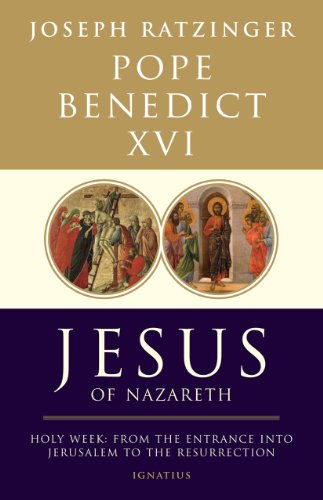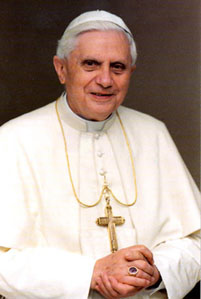Today's mass reading is from Exodus 12 - the establishment of the Passover. I used to wonder at the specificity of God's instructions for the ritual. Why must the lamb be "roasted" and not boiled? Why do they have to roast the head? Why must the blood be on the doorposts and lintel?
I was in awe of the symbols of crucifixion when I read that roasting the whole lamb involved a cross-shaped spit, and when I realized what the wooden doorframes prefigured. The Passover prepared the way for Christ's Eucharistic sacrifice - the paschal mystery. Every time we go to Mass, we participate in such an ancient ritual, one in which the lives of millions have been wrapped up throughout history. An understanding of Exodus 12 certainly spurs on a deep reverence for the Mass. It can also give us greater insights into how to receive the Eucharist.
The Hebrews were setting off to the promised land, but our journey is to our home in Heaven - the complete "revelation of Jesus Christ." Each time we receive the Eucharist, we should be in mind that we are pilgrims to another land, and fed by Christ, should hasten to ever come closer to His Kingdom.
I was in awe of the symbols of crucifixion when I read that roasting the whole lamb involved a cross-shaped spit, and when I realized what the wooden doorframes prefigured. The Passover prepared the way for Christ's Eucharistic sacrifice - the paschal mystery. Every time we go to Mass, we participate in such an ancient ritual, one in which the lives of millions have been wrapped up throughout history. An understanding of Exodus 12 certainly spurs on a deep reverence for the Mass. It can also give us greater insights into how to receive the Eucharist.
In this manner you shall eat it: your loins girded, your sandals on your feet, and your staff in your hand; and you shall eat it in haste (11).I'm not suggesting that we wear traveling costumes every Sunday, but I do think that, as St. Peter exhorted, we should gird up the loins of our minds, setting our hopes completely on the grace to be brought to us at the revelation of Jesus Christ (1 Pet 1:13). The phrase "gird your loins" refers to a lifting and tucking of robes in order to have freedom of movement. To gird the loins of our minds, I think, is to prepare for a journey.
The Hebrews were setting off to the promised land, but our journey is to our home in Heaven - the complete "revelation of Jesus Christ." Each time we receive the Eucharist, we should be in mind that we are pilgrims to another land, and fed by Christ, should hasten to ever come closer to His Kingdom.







